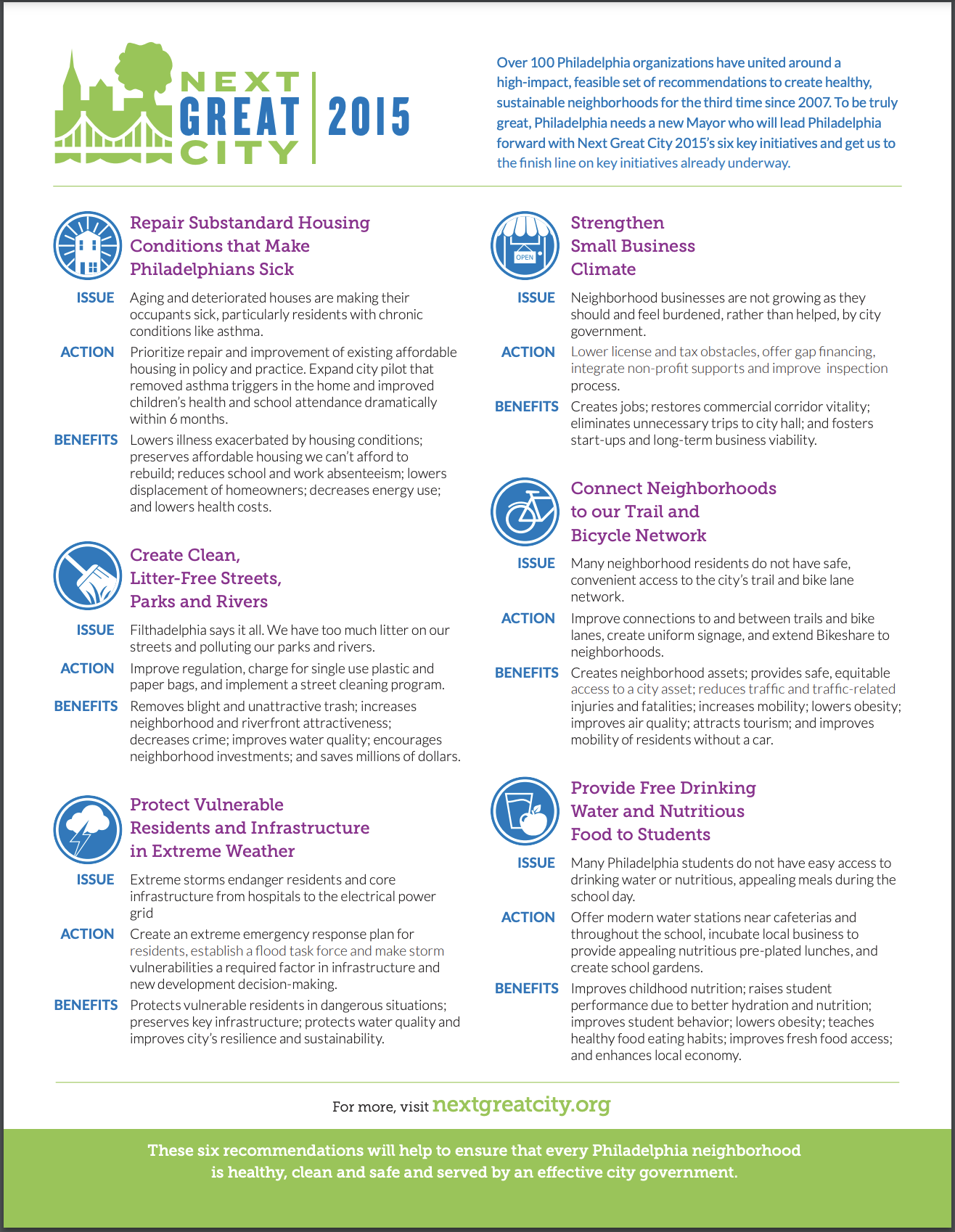Next Great City 2015, a coalition of over 100 Philadelphia organizations, created a set of recommendations for actions the next Mayor can take to make Philadelphia the Next Great City. This is Next Great City’s third collective effort since 2007 and the third time that Karen Black of May 8 facilitated three town-hall style meetings with over 100 organizational members to achieve consensus on a small number of high-impact, feasible recommendations to jointly support.
On Wednesday, February 18, Next Great City announced the six initiatives of its 2015 policy agenda, which is designed to lead to renewed investment, energy and strength in the city’s neighborhoods while supporting sustainable practices and an effective city government. Each of these recommendations are within the Mayor’s authority, can be accomplished within four years, will have a significant impact on the health of our neighborhoods and can be done at little cost or with identified funding.
The six recommendations are:
Healthy Houses: The next Mayor should prioritize repair and improvement of existing homes owned and rented by low-income residents to improve the health of residents and preserve irreplaceable affordable housing.
Nourished Students: Because many students do not have access to clean water or nutritious and appealing meals during the school day, the next Mayor should work to offer modern water stations throughout the school, incubate a local business to provide appealing and nutritious pre-plated lunches, and encourage school gardens.
Strong, Local Businesses: Help Philadelphia’s 93,000 small businesses to grow by through reforms that lower license and tax obstacles, offer gap financing, integrate nonprofit supports, and improve inspections.
Trail & Bike Lane Access: Improve connections to and between trails and bike lanes, create uniform signage, and extend Bikeshare to lower income neighborhoods.
Clean Public Spaces: To reduce the amount of litter in public spaces, the next Mayor should improve regulation, charge for single-use plastic and paper bags, and implement a street cleaning program.
Storm Preparedness: Create an extreme emergency response plan for residents, establish a flood task force, and make storm vulnerabilities a required factor in new development and infrastructure decision-making.
